“Unravel the enigmatic meaning of ‘undead’ and delve into its mysterious origins. From folklore to pop culture, discover the allure and fascination behind this captivating term.”
The Origins of the Term Undead
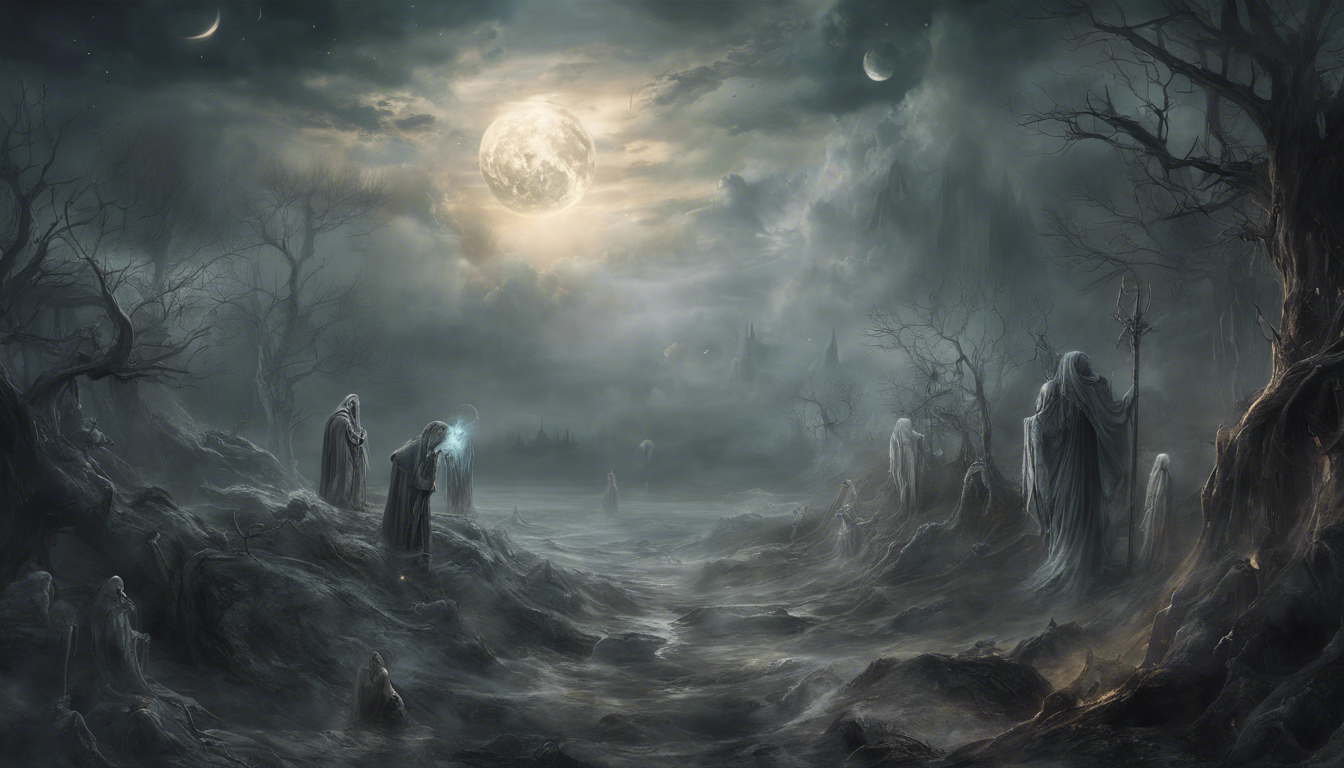
The term undead has captivated the human imagination for centuries, conjuring images of creatures neither living nor dead, roaming the earth with eerie purpose. To truly understand the term undead, one must delve into its origins and uncover the rich history behind this haunting concept.
ancient roots
The concept of undead can be traced back to ancient civilizations around the world. In Egyptian mythology, the idea of mummies rising from the dead to seek vengeance or protect their tombs was prevalent. Similarly, in Mesopotamian folklore, stories of restless spirits haunting the living bore resemblance to our modern understanding of the undead.
medieval folklore
During the medieval period, the notion of the undead became intertwined with European folklore and superstition. Tales of vampires, revenants, and zombies proliferated, with each culture adding its own unique twist to these undead beings. In Slavic countries, vampires were believed to be the reanimated corpses of the deceased, while in Western Europe, revenants were thought to be restless spirits returning from the afterlife.
literary influences
The 19th century saw a surge in undead themes in literature, thanks in part to iconic works such as Bram Stoker’s “Dracula” and Mary Shelley’s “Frankenstein”. These novels introduced the world to complex undead characters that both fascinated and terrified readers, shaping modern interpretations of the undead.
modern portrayals
Today, the concept of the undead continues to thrive in popular culture, with movies, TV shows, and video games exploring the diverse facets of these creatures. From the fast-moving zombies of “28 Days Later” to the brooding vampires of “Twilight”, the undead have evolved to reflect contemporary fears and desires.
In conclusion, the term undead may have ancient roots, but its meaning has evolved over time to encompass a wide array of creatures that blur the line between life and death. Whether as symbols of fear, fascination, or even desire, the undead continue to captivate our imagination and remind us of the mysteries that lie beyond the grave.
Defining Undead in Popular Culture
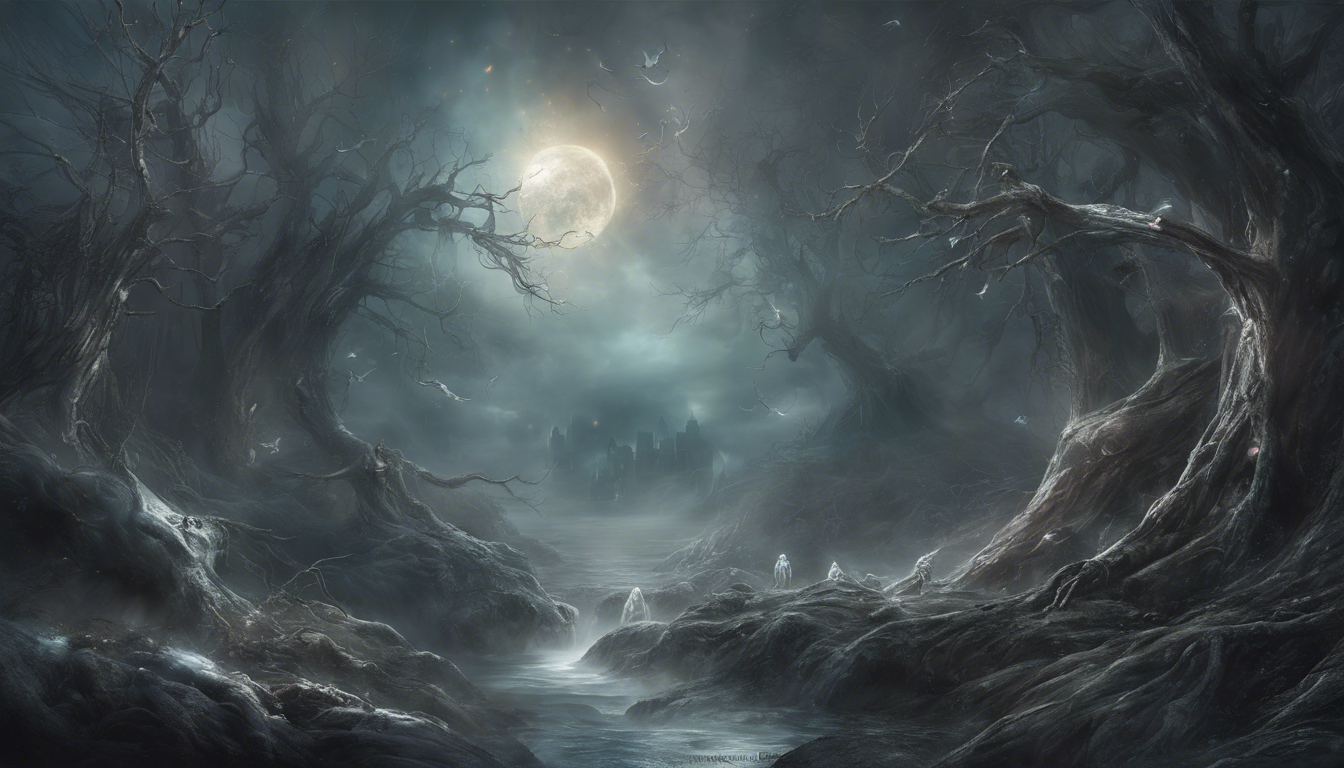
undead in pop culture: a mystical exploration
The concept of undead beings has been a recurrent theme in popular culture for centuries. From ancient myths and folklore to modern television shows and movies, the idea of creatures neither fully alive nor completely dead has captured the human imagination. In this article, we delve into the various interpretations of undead in popular culture and how they have shaped our understanding of these supernatural beings.
historical roots
Undead figures can be traced back to ancient civilizations, with myths and legends portraying beings such as vampires, zombies, and ghosts. These creatures were often depicted as malevolent entities that terrorized the living. In many cultures, rituals and practices were developed to ward off these undead beings, reflecting the deep-seated fear and fascination humans have had with the supernatural.
modern representations
In contemporary popular culture, undead beings have evolved to encompass a wider range of interpretations. Vampires, for example, have been romanticized in books and movies such as the Twilight series, where they are depicted as brooding and seductive creatures. Zombies, on the other hand, have become a staple in horror films and television shows like The Walking Dead, symbolizing societal fears and anxieties.
implications and symbolism
The portrayal of undead beings in popular culture often serves as a reflection of society’s collective fears and desires. Vampires may represent eternal life and forbidden desires, while zombies can symbolize mindless consumerism and the fear of a global pandemic. By exploring these undead characters, creators and audiences alike can delve into the darker aspects of human nature and the unknown.
In conclusion, the concept of undead beings in popular culture is a rich and multifaceted subject that continues to captivate audiences around the world. Whether they are depicted as bloodthirsty monsters or tormented souls, undead creatures offer a glimpse into the mysteries of life, death, and everything in between. As popular culture continues to evolve, so too will our understanding of these supernatural beings that blur the lines between the living and the dead.
The Evolution of Undead in Literature and Film
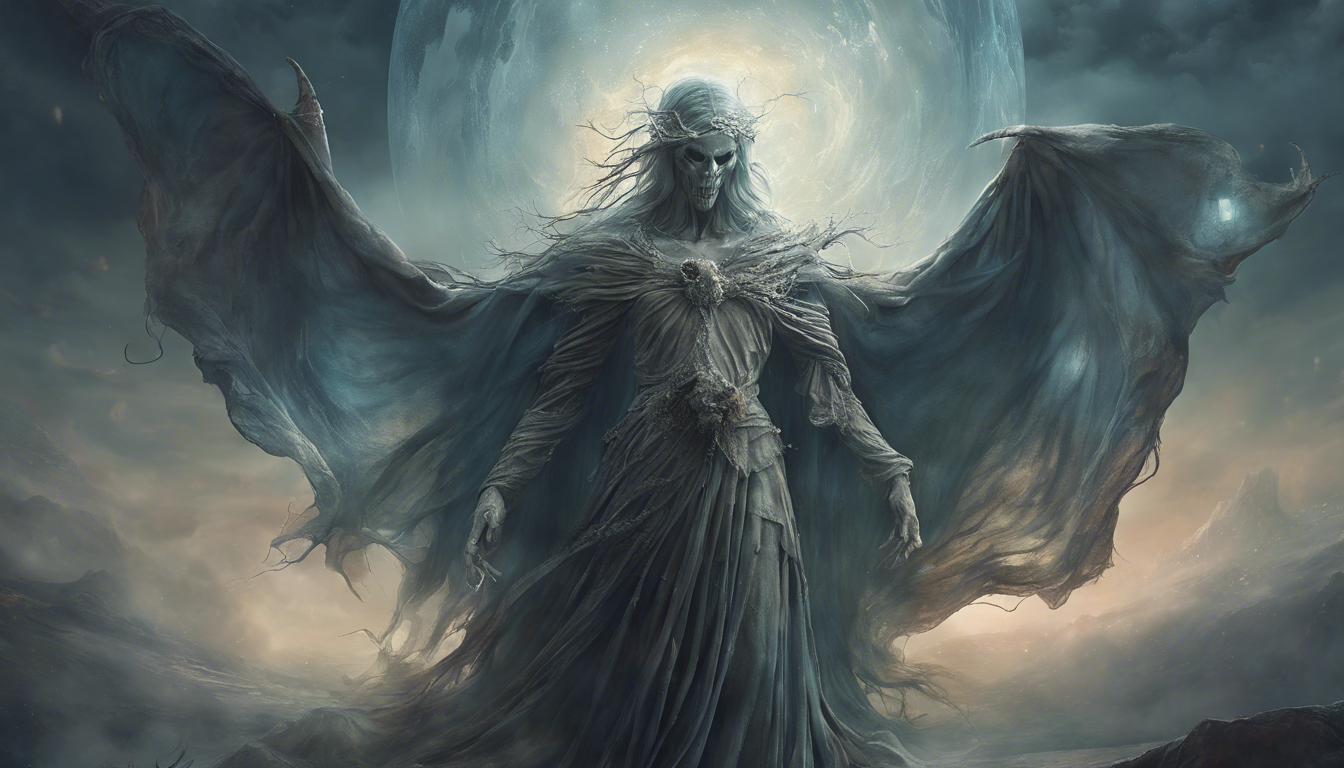
the concept of undead beings has been a fascinating subject in literature and film for centuries, captivating audiences with its eerie allure and suspenseful nature. from ancient folklore to modern pop culture, the portrayal of undead creatures has evolved significantly over time, reflecting societal fears, beliefs, and trends.
historical roots and folklore
the origins of undead beings can be traced back to various ancient cultures and folklore traditions. in european folklore, creatures like vampires and zombies were often depicted as reanimated corpses or spirits that haunted the living. these early depictions of undead beings were often tied to superstitions and fears surrounding death and the afterlife.
literary influences
the nineteenth century saw a surge in literary works featuring undead characters, most notably in bram stoker’s novel “dracula” and mary shelley’s “frankenstein.” these iconic novels introduced vampires and reanimated beings to a wider audience, shaping the modern perception of undead creatures in literature.
cinematic representations
with the advent of cinema, undead beings found a new platform to terrify and thrill audiences. classic horror films like “night of the living dead” and “nosferatu” brought zombies and vampires to the big screen, solidifying their places in the world of film and popular culture.
modern interpretations and trends
in recent years, the portrayal of undead beings has undergone a renaissance in literature and film, with new and innovative takes on traditional tropes. from the romanticized vampires of the “twilight” series to the fast-paced zombies of “world war z,” undead characters continue to evolve and adapt to the changing tastes of audiences.
the evolution of undead beings in literature and film reflects our ever-changing attitudes towards death, the afterlife, and the unknown. as society evolves, so too do our depictions of undead creatures, ensuring that they will continue to haunt our imaginations for years to come.
Cultural Beliefs and Folklore Surrounding the Undead
the undead in cultural beliefs
Throughout history and across various cultures, undead beings have been a fascinating subject of cultural beliefs and folklore, sparking fear, curiosity, and superstition. The concept of the undead often revolves around the idea of deceased individuals returning to the realm of the living in some form or another. This phenomenon has been portrayed in literature, mythology, and legends, shaping the way different societies perceive and interpret the afterlife.
variations in undead folklore
Cultural beliefs surrounding the undead vary greatly from one culture to another. In parts of Eastern Europe, the vampire is a prominent figure in folklore, often depicted as a reanimated corpse that drinks blood to survive. In contrast, some Asian cultures believe in ghosts or spirits of the deceased who linger in the world of the living. These entities are often believed to have unfinished business or unresolved issues, tying them to the mortal realm.
the role of undead in rituals
The undead are not only present in folklore but also play a significant role in rituals and traditions within certain cultures. In some cultures, rituals are performed to prevent the deceased from returning as undead beings, such as the use of garlic or wooden stakes to repel vampires. Additionally, honoring ancestors through ceremonies and offerings is a way to appease the spirits and prevent them from becoming vengeful undead.
the psychology behind undead beliefs
The belief in the undead can be viewed through a psychological lens, reflecting humanity’s fear of death and the unknown. Cultural beliefs surrounding the undead often serve as a way to cope with mortality and to make sense of the mysteries of life and death. Additionally, they can act as cautionary tales, warning individuals of the consequences of immoral or sinful behavior that may lead to becoming an undead creature.
evolution of undead depictions
Over time, the portrayal of undead beings has evolved alongside changes in society and pop culture. From the traditional vampires of Eastern European folklore to the modern interpretation of zombies in mainstream media, undead entities continue to captivate audiences and inspire creative works. These cultural beliefs and folklore surrounding the undead not only reflect historical perspectives on death and the afterlife but also offer insights into the human psyche and our eternal fascination with the unknown.
The Psychological Impact of the Undead in Society
the concept of the undead has long been a source of fascination in society, appearing in myths, folklore, literature, and popular culture. From vampires and zombies to ghosts and ghouls, these supernatural beings have a significant psychological impact on individuals and society as a whole.
The Fear of the Unknown
the undead represent the unknown, the mysterious, and the beyond. Undead creatures challenge our understanding of life and death, blurring the lines between the natural and the supernatural. This ambiguity can lead to fear, anxiety, and a sense of unease among individuals who contemplate the existence of such beings.
The Desensitization Effect
through constant exposure to undead imagery in movies, tv shows, and video games, society has become desensitized to the horror of these creatures. Undead characters are no longer as shocking or terrifying as they once were, leading to a normalization of the supernatural and a shift in societal attitudes towards these beings.
The Symbolism of the Undead
in addition to their psychological impact, the undead often serve as powerful symbols in society. Vampires, for example, are often associated with seduction, immortality, and forbidden desires. Zombies, on the other hand, are symbols of mindless consumerism, conformity, and the fear of a loss of self. Undead beings reflect our deepest fears, desires, and anxieties, serving as mirrors to our own inner worlds.
The Evolution of the Undead in Pop Culture
over the years, the portrayal of the undead in popular culture has evolved, reflecting changing societal norms and values. Vampires are no longer just bloodthirsty monsters but complex characters with depth and emotion. Zombies are not just mindless flesh-eaters but metaphors for societal collapse and existential dread. Undead beings continue to evolve and adapt to reflect the fears and desires of society.
Confronting the Undead Within
while the undead may be fictional, the psychological impact they have on individuals is very real. Undead characters often embody our darkest impulses, our deepest fears, and our unspoken desires. By confronting these beings in popular culture, individuals can confront their own inner demons and come to terms with the complexities of the human psyche.
In conclusion, the psychological impact of the undead in society is profound and multifaceted. From fear and anxiety to desensitization and symbolism, undead beings provoke a wide range of emotions and reflections in individuals. By exploring the role of the undead in popular culture and media, we can gain a deeper understanding of ourselves and the world around us.
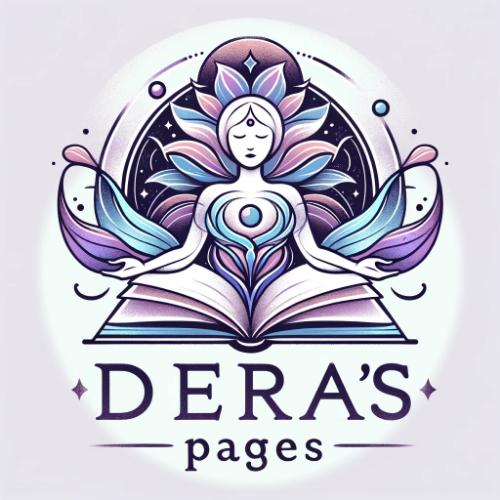
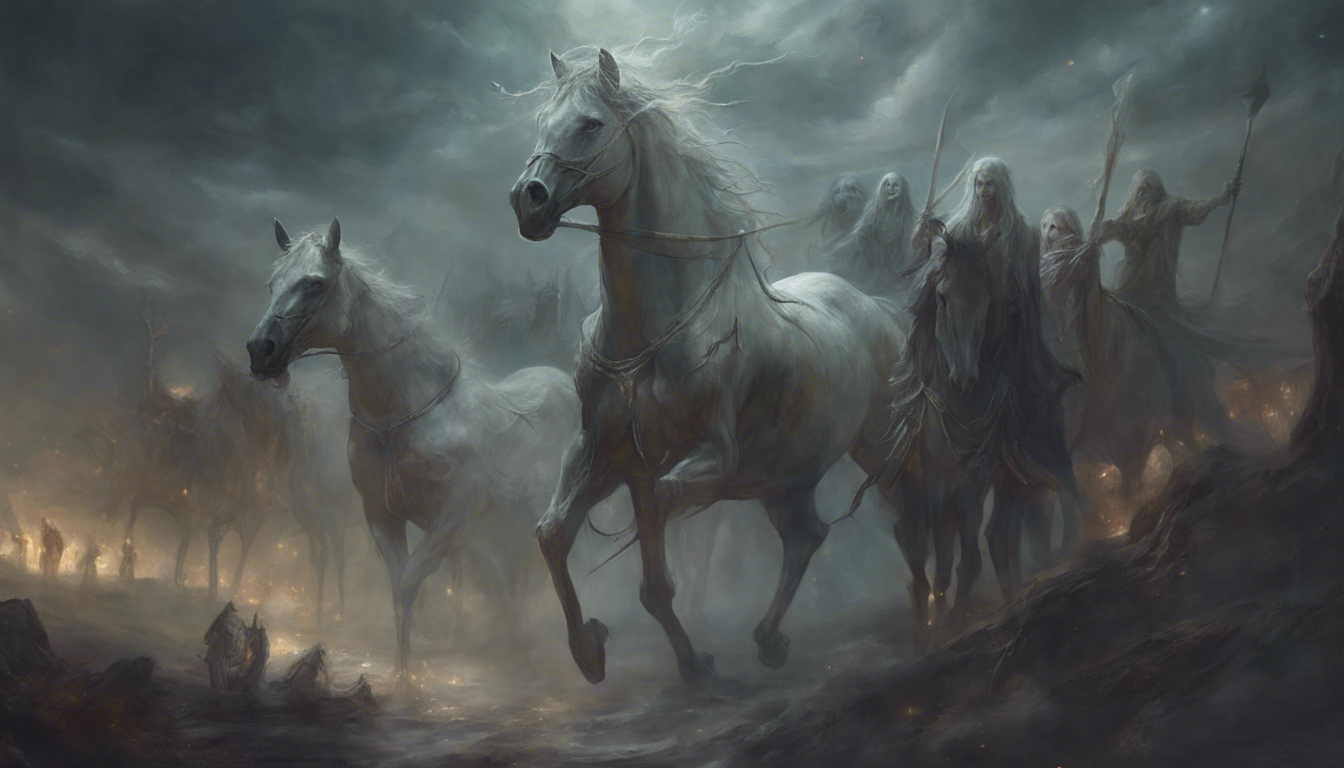
Article written by Dera
Greetings, I am Dera, a 35-year-old individual with a deep passion for spirituality. Through my website, I aim to share my insights and knowledge to help others on their spiritual journey. Join me on the path to inner peace and enlightenment.